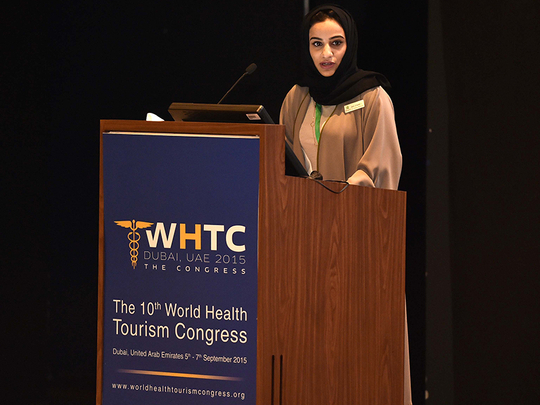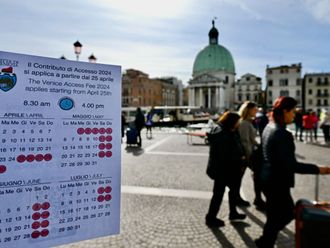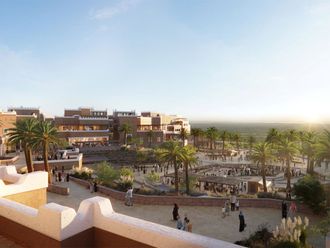
Dubai: Dubai attracted 260,000 medical tourists in the first half of 2015, up 12 per cent from the same period a year ago, according to a Dubai Health Authority (DHA) official.
“Around 40 per cent of [the medical tourists] are from outside the country,” Linda Abdullah Ali, head of the medical tourism office at the health regulation department of the DHA, told reporters at the 10th World Health Tourism Congress in Dubai on Sunday.
The medical-purpose visits to Dubai generated Dh1 billion in revenue during the six-month period, Ali said. She did not give the percentage of growth over the same period in 2014.
“In the third and fourth quarter, we expect steady growth [in medical tourist numbers] of at least 12-15 per cent,” she said.
Dubai’s medical visitor numbers are expected to grow by around 12 per cent annually. By 2020, the emirate is anticipated to welcome more than 500,000 medical tourists and generate Dh2.6 billion in revenue, marking a 20 per cent growth over 2015, Ali said.
Dubai had set a target last year to welcome 500,000 medical tourists by 2020, but it will now exceed it by 12-13 per cent, she said.
The emirate aims to achieve its 2020 target by continuing to promote Dubai as a medical tourism destination to neighbouring Gulf Cooperation Council (GCC) countries, Africa, Asia and the UK, and offering medical tourism packages, according to Ali.
Flight tickets
Medical tourism packages were rolled out last year to attract more tourists and residents. For tourists, the packages include hotel stay and flight tickets, and for residents, discounted rates for certain medical services.
The most popular medical treatments in Dubai include orthopaedics, cosmetic surgery and infertility treatments, with most medical visitors coming from the GCC, the wider Arab world and Asian countries, according to Fatma Al Sharaf, DHA’s senior manager, strategy and partner development.
Dubai aims to become a leading medical tourism hub in the region. It has more than 2,700 health care facilities, with more being planned, according to Ahmad Ebrahim Bin Kalban, chief executive of the hospitals services sector and acting chief executive of the clinical support services sector of the DHA. Dubai Health care City (DHCC), said to be the world’s largest health care free zone, is expanding to include the Nashami project, which will feature 3.3 million square feet of rehabilitation facilities, retail stores, as well as hospitality and leisure facilities. It is expected to receive 20,000 people.
DHCC is home to more than 130 medical centres and more than 5,000 health care professionals, according to Al Sharaf.












